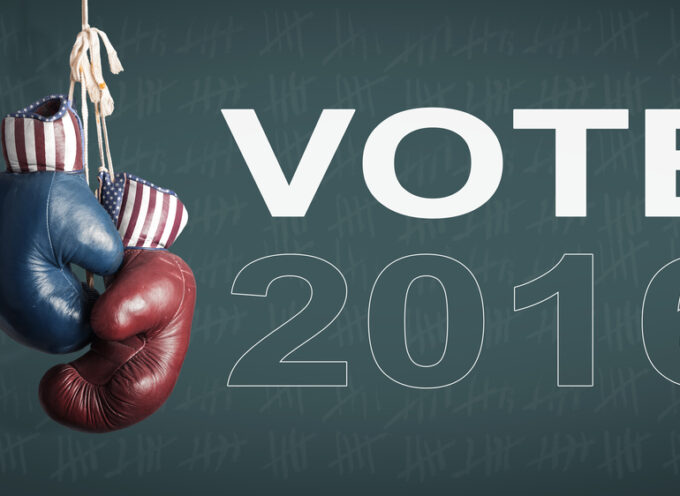The past decade has made one thing clear to evangelicals: the social, cultural, and political ground is shifting beneath us. We are not “winning the day” with our vision of the good life. Although we have seen some incremental progress on the pro-life issue, we are experiencing consistent regression on other issues that matter most to us, such as religious liberty, human dignity, gender and sexuality, and free speech.
In this moment of uncertainty as we find ourselves marginalized in an increasingly pagan public square, the Old Testament offers important lessons for us. Especially prescient is the story in Daniel 3 about three Jewish men—Shadrach, Meshach, and Abednego—who are Babylonian captives under King Nebuchadnezzar. From these mid-level government officials, we learn four significant lessons about being faithful witnesses in a pagan public square.
- We must not bow to the false political gods of our day.
In Daniel 3, we learn that Nebuchadnezzar had constructed a 90-foot-high gold statue on the plain of Dura. He gathered government officials from across his kingdom and ordered them to worship the statue. It was quite an event, replete with celebrity musicians and politicians from around the world. Anyone who did not bend a knee to Nebuchadnezzar was threatened with fire, and Shadrach, Meshach, and Abednego refused to bow.
Similarly, evangelicals should not submit to the false political gods that flourish and abound in the United States of America. How do we identify the “false gods” in our own nation? We look for anything that has been raised to a level of ultimacy that God alone occupies.
One way to gain perspective on false political gods is to identify perennial idols—such as sex, money, and power—and observe the way they shape political platforms and public policies. Another way is to identify dominant political ideologies and excavate their idolatrous underpinnings. Divorced from the corrective influence of the gospel, every ideology mislocates “evil” and then deifies some aspect of God’s creation to redeem us from that evil.
Classical political liberalism takes on such ideological dimensions. It elevates individual freedom and autonomy to ultimate status. This can manifest in a sort of social progressivism, because when individual autonomy is made the chief moral arbiter, norms are liable to constant change. The epitome of our societal obsession with the liberal ideology (and idolatry) is the cliché, “Follow your heart.” Which is another way of saying, “I have the right to do whatever I please.” The deleterious fruits of such an attitude—elective (and frequent) abortion, embarrassingly high divorce rates, nearly complete disregard for biblical sexual mores, the diminishment of religious liberty—are legion. Other ideologies such as nationalism, socialism, and social conservatism are similarly idolatrous.
- We must stand strong even in the face of immense social, cultural, and political pressure.
Once the three Jewish nonconformists refused to bow, a group of rival government officials arranged for them to be brought to trial in front of Nebuchadnezzar whose initial rage soon turns into puzzlement. Nebuchadnezzar offers them another opportunity to capitulate and promises that the Jewish God could not possibly save them from the king’s powerful hand. In response to the king, Shadrach, Meshach, and Abednego state that the God of Israel can in fact save them, but even if he doesn’t, they will not worship the false God.
In the United States, evangelicals will experience opposition in many forms, including corporate pressure, legal sanctions, social ostracism, and social media flash mobs. These types of opposition will increasingly coalesce to put evangelicals under immense social, cultural, and political pressure. We should remain convictional, should refuse to compromise, and should capitalize on every opportunity to decenter ourselves by pointing to God’s power to redeem.
- We must retain our Christian composure even in the heat of the battle.
In the Daniel 3 narrative, Nebuchadnezzar responds to the Jewish nonconformists by having them thrown into the incinerator. The story indicates that they did not resist arrest or spew vitriol, but instead retained their composure as they were punished for their righteous deeds.
The lesson for American evangelicals is pointed, even painful. When we are trusting God and decentering ourselves, we will not resort to unchristian behavior as a means of promoting Christian goals. We will not demonize, degrade, or misrepresent our opponents in order to score political points. We will prioritize long-term witness over short-term political victories. We will trust that God is working in and through our convictional witness even when it seems that he is not.
- We must trust that God will display his Kingship in and through our witness.
In the conclusion of Daniel 3, God saves the three Jewish non-conformists. Just after Nebuchadnezzar had them thrown in the fire, he notices that the men aren’t being consumed and that a mysterious fourth person–whose appearance was like “the Son of God”–has joined them. Nebuchadnezzar casts aside his royal dignity, runs toward the incinerator, and invites them to come out of the fire. In an astonishing reversal of his position, Nebuchadnezzar praises the Jewish God, legitimizes the Jewish religion, and promotes the nonconformists.
Let’s be clear: American evangelicals should not conclude that God will give us visible political victories in response to our witness. Sometimes God gives us visible victories and sometimes he does not. We are called to be faithful rather than victorious, witnesses rather than winners. Christ alone “wins” politically and one day, his triumphant Kingdom will be made manifest. The lesson to be gained, therefore, is that God will work in and through our faithfulness to glorify himself.
Conclusion
The narrative of Shadrach, Meshach, and Abednego offers the church in America an incredible vision of how to live faithfully in the midst of such social, cultural, and political idolatry. In fact, the book of Daniel reminds the church that Babylon is nearer than we think. And like the three Israelite men, God has sanctified and sent his redeemed people into the public square to proclaim with our lips and lives that another King reigns…even if the furnace is “heated seven times more than it was usually heated” (Daniel 3:17).
Subscribe
Never miss a post! Have all new posts delivered straight to your inbox.








It is sobering to think about ecclesiastical Babylon and economic Babylon. Scripture details the relationship but it does not sound good:
“And there came one of the seven angels which had the seven vials, and talked with me, saying unto me, Come hither; I will shew unto thee the judgment of the great whore that sitteth upon many waters: with whom the kings of the earth have committed fornication, and the inhabitants of the earth have been made drunk with the wine of her fornication. So he carried me away in the spirit into the wilderness: and I saw a woman sit upon a scarlet coloured beast, full of names of blasphemy, having seven heads and ten horns. And the woman was arrayed in purple and scarlet colour, and decked with gold and precious stones and pearls, having a golden cup in her hand full of abominations and filthiness of her fornication: And upon her forehead was a name written, Mystery, Babylon The Great, The Mother Of Harlots And Abominations Of The Earth. And I saw the woman drunken with the blood of the saints, and with the blood of the martyrs of Jesus: and when I saw her, I wondered with great admiration…” (Revelation 17:1-5)
Obviously, God will not be pleased with this union. Spiritual adultery takes place when the people of God reject his truth, reject his word. This results in dwelling in the world where Satan has his throne.
Babylon is an economic system, designed to do many unfavorable things, and will be worldwide in its scope. The prophet Jeremiah wrote “Moreover I will deliver all the strength of this city, and all the labours thereof, and all the precious things thereof, and all the treasures of the kings of Judah will I give into the hand of their enemies, which shall spoil them, and take them, and carry them to Babylon…” (Jeremiah 20) That passage pertains to Israel and the judgment upon the sin of the nation. In recent history, it did occur beginning in Washington, DC, in 1995 and continued throughout the Great Recession. The whole world felt the ramifications, a snapshot of that which is to come.
The great tribulation will be a hard time. Of course, God is supreme and power belongs to him. (Psalm 62) He is sovereign, also. Yet, there will be a horrible time on the earth, for the anti-Christ, empowered by Satan, will war against saints, even oppose the Christ. (Revelation 17:14) In addition, the prophet-seer Daniel saw the same thing: “I beheld, and the same horn made war with the saints, and prevailed against them; until the Ancient of days came, and judgment was given to the saints of the most High; and the time came that the saints possessed the kingdom…” (Daniel 7) Furthermore, “…and then shall that Wicked be revealed, whom the Lord shall consume with the spirit of his mouth, and shall destroy with the brightness of his coming:..” (2 Thessalonians 2)
So glad when the church is raptured to heaven to escape all of these things appointed for the great tribulation.
Amerika is the new Babylon set to be destroyed in Revelation 18–not a “metaphor” for anything. Amerika since the Free Masonic, 1787 U.S. Constitution has NOT been a Christian nation nor a 51% mob rule democracy–but a secular representative republic based on fair play economic exploitation (Mammon god of $$$ money) while embracing all degeneracy. It’s no longer upheld by moral stoical people doing “Little House on the Prairie” and is crumbling from its corrupt government and nihilist degenerate urbanized population.
We had better collectively REPENT–not just individuals expecting non-existent, cakewalk rapture extractions–which means ditching the 1787 USC and replacing with a MORAL STOICAL Constitution based on 7 of the 10 Commandments: don’t kill, bear false witness, steal, do adultery, have idols but take a day off to worship God.